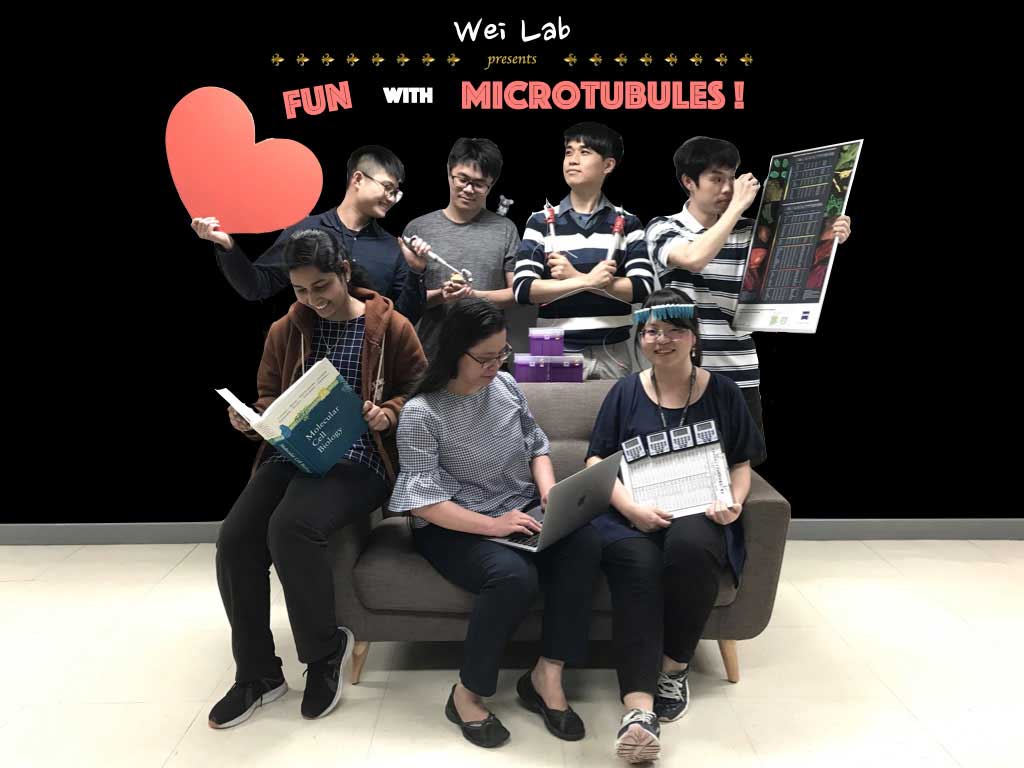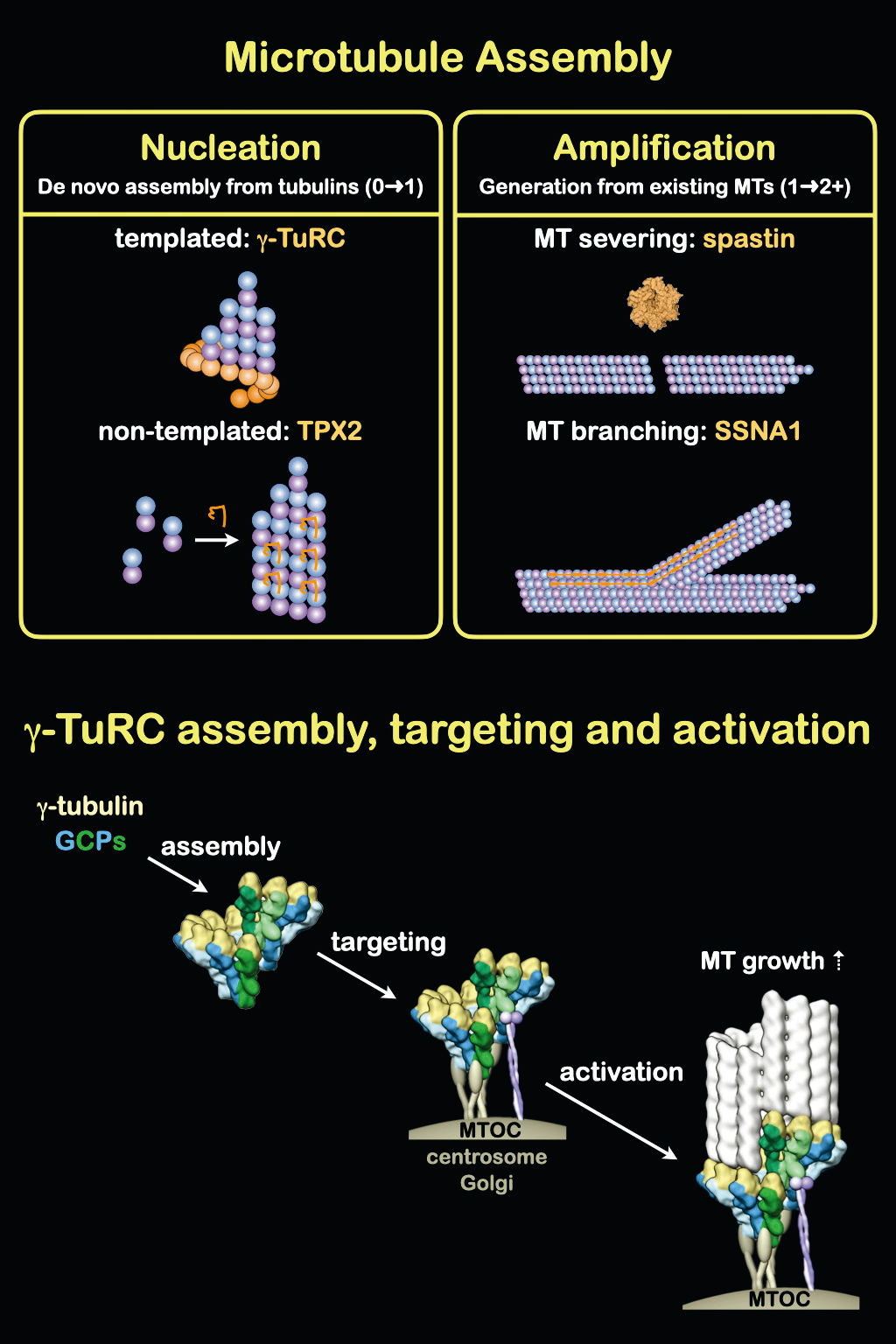Microtubule and Organelle Biology
The long-term goal of our research is to understand, at molecular, cellular and developmental levels, how the cytoskeleton is organized and interacts with organelles, and how their interplay contributes to normal physiology and disease. We are particularly interested in microtubules, centrosomes and the Golgi apparatus, as these essential cellular structures work coordinately in various biological processes, such as cell division, ciliogenesis, migration and neuronal development.
Our current focus is to investigate how microtubules are robustly generated in vivo, either via de novo assembly (nucleation) from tubulin or via severing and branching (amplification) of existing microtubules.
I. Mechanisms of γ-TuRC assembly and regulation
Microtubule nucleation requires a highly conserved protein complex called the γ-tubulin ring complex (γ-TuRC). We aim to decipher the mechanisms underlying γ-TuRC assembly, targeting and activation.
II. Functional impact of microtubule nucleation and amplification on health and disease
Disorganized microtubule network is linked to a broad array of neurogenesis abnormalities, neurodegenerative disorders and other diseases. Using primary culture and mouse models, we aim to dissect how microtubule nucleation, severing and branching regulate neuronal morphogenesis and brain development, and whether dysregulation contributes to pathological phenotypes in related diseases.
- PDF, 2014-2017, Biochemistry & Biophysics, UCSF, USA
- PDF, 2010-2014, Cell Biology, UT Southwestern, USA
- Ph.D., 2004, Cell Biology, UT Southwestern, USA
- MS, 2000, Organic Chemistry, NTU, TWN
- BS, 1996, Chemistry, NTU, TWN
- 2020-2024, Academia Sinica Career Development Award
- Wei, J.H., Chou, Y.F., Ou, Y.H., Yeh, Y.H., Tyan, S.W., Sun, T.P., Shen, C.Y., Shieh, S.Y. (2005) TTK/ hMps1 participates in the regulation of DNA damage checkpoint response by phosphorylating CHK2 on threonine 68. J. Biol. Chem. 280: 7748-7757.
- Chakraborty, P., Wang, Y., Wei, J.H., van Deursen, J., Yu, H., Malureanu, L., Dasso, M., Forbes, D.J., Levy, D.E., Seemann, J., Fontoura, B.M. (2008) Nucleoporin levels regulate cell cycle progression and phasespecific gene expression. Dev. Cell. 15: 657-667.
- Bisel, B., Wang, Y., Wei, J.H., Xiang, Y., Tang, D., Miron- Mendoza, M., Yoshimura, S., Nakamura, N., Seemann, J. (2008) ERK regulates Golgi and centrosome orientation towards the leading edge through GRASP65. J. Cell Biol. 182: 837-843.
- Wei, J.H., Seemann, J. (2009) The mitotic spindle mediates inheritance of the Golgi ribbon structure. J. Cell Biol. 184: 391-397.
- Wei, J.H., Seemann, J. (2010) Nakiterpiosin targets tubulin and triggers mitotic catastrophe in human cancer cells. Mol. Cancer Ther. 9: 3375-3385.
- Wei, J.H., Zhang, Z.C., Wynn, R.M., Seemann, J. (2015) GM130 regulates Golgi-derived spindle assembly by activating TPX2 and capturing microtubules. Cell 162: 287-299.
- Chow, T.T., Shi, X., Wei, J.H., Guan, J., Stadler, G., Huang, B., Blackburn, E.H. (2018) Local enrichment of HP1alpha at telomeres alters their structure and regulation of telomere protection. Nat. Commun. 9: 3583.
- Guo, H., Wei, J.H., Zhang, Y., Seemann, J. (2021) Importin α phosphorylation promotes TPX2 activation by GM130 to control astral microtubules and spindle orientation. J. Cell Sci. 134: jcs258356.


